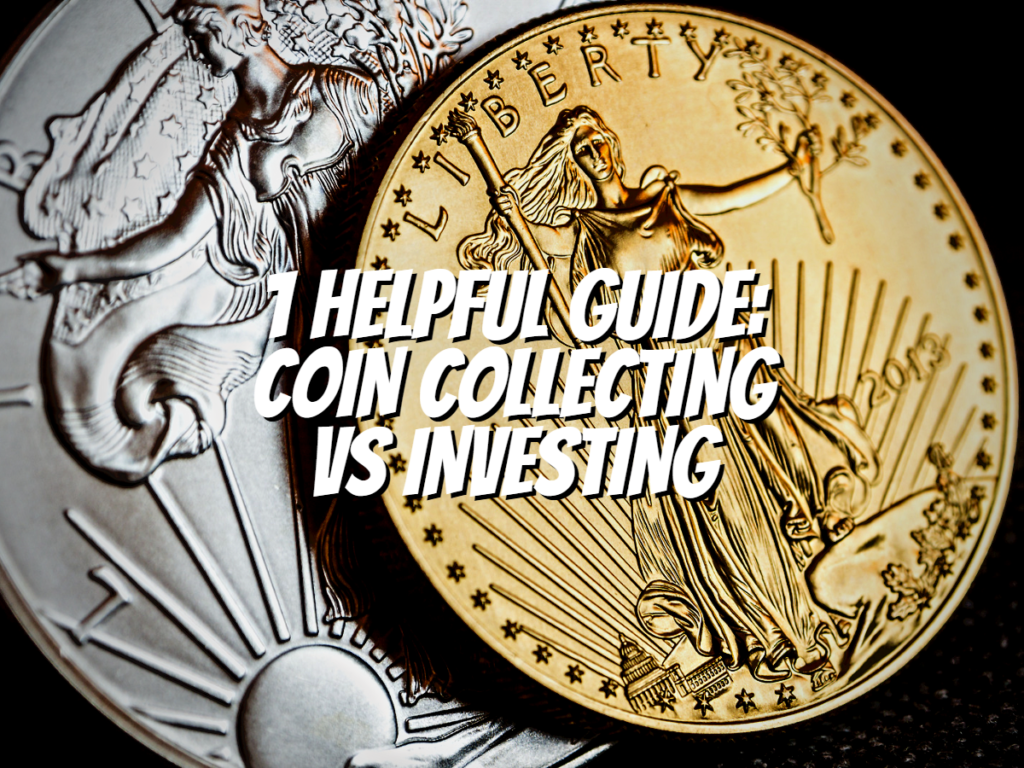Coin collecting is a hobby that’s been around since early times. It has evolved, but it’s still around today.
If you’re interested in getting into this hobby, read on to learn more about what it involves and how you can get started!
Coin Collecting vs Investing

The term “numismatics” refers to the study of or the hobby of collecting coins, tokens, paper money, and other monetary artefacts.
An item’s aesthetic, historical, or emotional significance is often a primary consideration for collectors.
People collect for various reasons, including entertainment, knowledge, and preservation of past cultures and eras.
Coin investing, conversely, entails buying coins primarily for their precious metal content or hoping their value will rise.
Investors purchase coins with the hope that their value will rise over time, yielding a profit.
Coin collectors and investors may enjoy their collection’s artistic or historical value, but their primary goal is profit.
The History of the Gold Coin

Lydia, a region in modern-day Turkey, was the birthplace of coined gold around 600 BCE. These first coins were struck from a gold and silver alloy called electrum.
Gold coins gained acceptance as legal tender in many monetary systems, including those of the Romans, Byzantines, and Islamic Caliphates.
Gold coins have long been recognized as symbols of prosperity, authority, and status.
Gold coins like the Spanish doubloon and the British guinea were essential in facilitating international trade.
Collectors and investors highly seek gold coins in the precious metals market.
The Beginning of Coin Collecting

In ancient Rome, coin collecting was a popular pastime for the ruling class.
Collecting ancient coins for their historical significance and artistic beauty became popular among scholars and aristocrats during the Renaissance.
With the development of coin catalogs and numismatic societies, coin collecting gained widespread popularity among people of all economic backgrounds in the nineteenth century.
Research Coins

Whether you’re a collector or an investor, doing your homework is essential.
The rarity, age, and condition of a coin are all factors that contribute to its value. Information about specific coins or collections can also be found in numismatic reference books, online databases, and numismatic clubs.
Research for collectors may involve looking into a coin’s history, design, or minting process.
For investment, analysis of a coin’s precious metal content, rarity, and market demand are the primary focus areas.
How to Invest in Coins

There are several crucial steps to investing in coins. Your investment objectives and comfort level should come first.
For instance, do you intend to make quick money or keep your money safe for the future?
Learn the difference between bullion coins, commemorative coins, and rare coins, as well as the other types of coins available for investment.
Learning how precious metal content, rarity, condition, and market demand affect the value of a coin is crucial.
Then, when you’re ready to make a purchase, think about doing business with trustworthy dealers or visiting coin shows to ensure you’re getting a good deal.
The final step in safeguarding your coins is to keep them safe and secure.
What is a Person Who Collects Coins Called?
A numismatist or numismatic is someone who collects coins. Many people interested in numismatics do so because they are moved by their coins’ beauty, significance, and history.
They might be experts on a certain period, region, or topic, and they love to share what they’ve learned with other collectors.
Does Coin Collecting Have a Future?
Coin collecting and investing still have a bright future despite the popularity of digital currencies and other investment options.
There will always be a demand for coins due to their historical significance and the monetary value of their precious metal content.
Technology now allows coin collectors to more easily find and purchase rare pieces from around the world.
Collectors can find resources and make new contacts through online marketplaces, forums, and numismatic clubs.
Coin collecting has gained popularity due to the growing interest in preserving cultural heritage.
Coins provide a novel avenue for diversification and hedging against economic volatility for investors.
Particularly gold and silver coins have a long history of not losing value despite economic uncertainty.
In addition, collectors and investors will always compete for these rare coins because of their high value and historical significance.
Before you go…
Despite their similarities, coin collecting and coin investing are two separate activities. Investors are motivated by the hope of a financial return on their coin holdings, while collectors are motivated by a love of history, art, and culture. Both numismatics and investing in precious metals are fascinating pursuits because they provide their participants with opportunities for personal growth and monetary gain. There’s never been a better time to dive headfirst into the fascinating world of coins, whether you’re a seasoned collector or a budding investor.
Check out my next article: “What is the Future of Coin Collecting?“
Related Articles:

